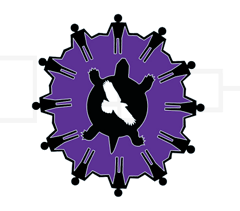Abstract
Background- American Indian youth are strong, resilient leaders with enormous potential. This potential is sometimes overshadowed by deficit based program approaches, where disparities and vulnerabilities are the focus of prevention programs.
Approach- To address deficit-based approaches and work toward a 7th generation paradigm that is strength based and community driven we developed the Sources of Strength scale (SOS). The SOS is a 13-item scale designed to measure the strengths of American Indian youth. We administered the SOS to youth and young adults involved in the Intergenerational Connection Project (ICP). ICP is a 5-year prevention program aimed at increasing youth strengths through culture-based programming.
Method- Participants were 189 American Indian youth involved in five separate ICP activities from 2017 to 2018. After ICP activities we collected the SOS and entered responses into SPSS version 24.0. We analyzed data and explored differences in SOS scores based on age and gender.
Results- A total of 66 males (34.9%), 83 females (43.9%), and 40 did not report their gender. The average age of youth was 15.8 years (SD=2.30, range 11-24 years). The mean SOS score for males was slightly higher than females (M=101, SD=18.79, vs. M=99.30, SD=23.61, range 33 to 130). Overall SOS scores increased with age. Our goal was to document strengths among American Indian youth participating in the ICP. Changing the focus toward strength-based measures rather than deficit based outcomes will ensure we build a strong, healthy, and resilient seventh generation.
Recommended Citation
Kelley, Allyson and Small, Clayton
(2020)
"Documenting Resiliency of American Indian Youth: Preliminary results from Native PRIDE’s Intergenerational Connections Project,"
Journal of Indigenous Research: Vol. 8:
Iss.
2020, Article 5.
DOI: https://doi.org/10.26077/88kd-n107
Available at:
https://digitalcommons.usu.edu/kicjir/vol8/iss2020/5

